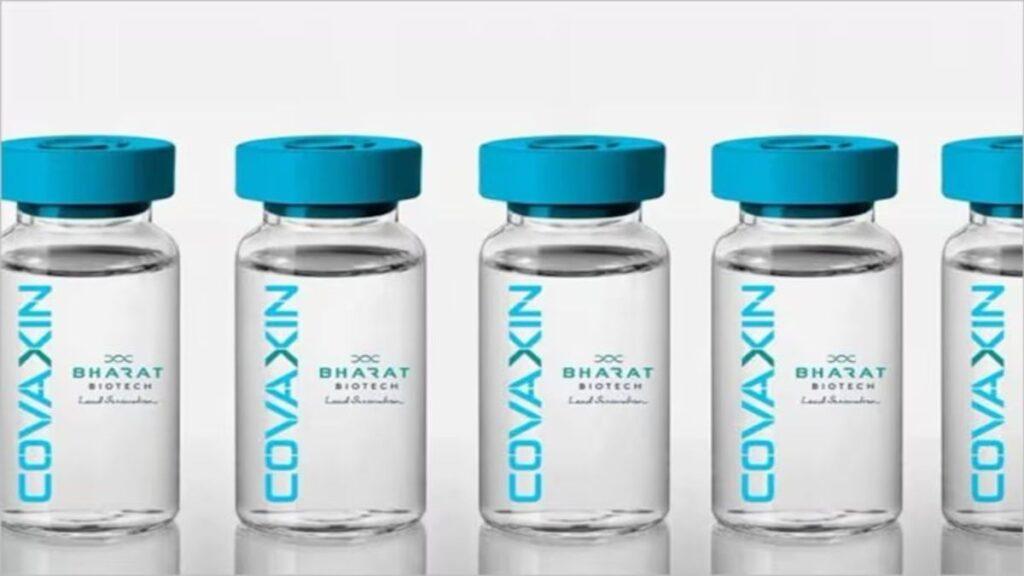Covaxin Side Effects: BHU study finds adverse health issues in individuals vaccinated with Covaxin, Bharat Biotech refutes claims

BHU study finds adverse health issues in individuals vaccinated with Covaxin.
A one-year follow up research conducted by Banaras Hindu University (BHU) scholars came back with disturbing findings on Covaxin side effects. It was found that over 30% individuals who took Covaxin reported ‘adverse events of special interest,’ or AESI.
During the study, 635 adolescents and 291 adults could be contacted, out of 1024 individuals enrolled, for the 1-year follow-up.
Findings of the Study
- Viral upper respiratory tract infections were reported by 304 (47.9%) adolescents and 124 (42.6%) adults in this period.
- New-onset skin and subcutaneous disorders (10.5%), general disorders (10.2%), and nervous system disorders (4.7%) were the common AESIs in adolescents.
- General disorders (8.9%), musculoskeletal disorders (5.8%), and nervous system disorders (5.5%) were the common AESIs in adults.
- Menstrual abnormalities were noticed in 4.6% of female participants.
- Ocular abnormalities and hypothyroidism were observed in 2.7% and 0.6% of participants, respectively. Among serious AESIs (1%), stroke and Guillain–Barre syndrome were identified in 0.3% and 0.1% of participants, respectively.
- Among adolescents, female individuals, those with a history of allergy and post-vaccination typhoid were respectively at 1.6, 2.8, and 2.8 times higher risk of AESIs.
- The majority of the AESIs persisted at the 1-year follow-up. Female individuals, adolescents with pre-vaccination COVID-19, those with co-morbidities, and those with post-vaccination typhoid had respectively 1.6, 2, 2.7, and 3.2 times higher odds of persistent AESIs.
- Adults with co-morbidities had more than 2 times higher odds of AESIs and persistent AESIs.
Study Conclusion
The patterns of adverse events of special interest (AESIs) developing after BBV152 (Covaxin) differed from those reported with other COVID-19 vaccines as well as between adolescents and adults. With the majority of AESIs persisting for a significant period, extended surveillance of COVID-19-vaccinated individuals is warranted to understand the course and outcomes of late-onset AESIs. Serious AESIs might not be uncommon and necessitate enhanced awareness and larger studies to understand the incidence of immune-mediated phenomena post-COVID-19 vaccination. The relationship of AESIs with sex, co-morbidities, pre-vaccination COVID-19, and non-COVID illnesses should be explored in future studies.
Bharat Biotech’s Response
Bharat Biotech, the manufacturer of Covaxin, refuted the findings of the study pointing to the lapses in the study. It said, “For such a study in safety to be effective, informative and to avoid investigator bias, several data points are also required. For example, the AESI safety profile of the subjects prior to participation in the study; comparison of the safety profile of non-vaccinated subjects during the course of the study; comparison of the safety profile of subjects who received other vaccines during the course of the study; all study participants should be followed during the course of the study, instead of only a subset.”
BIO-TECH: Ruling out any adverse side effects, @BharatBiotech has stated that the studies & safety follow-up activities demonstrated an excellent safety record for its #Covid19vaccine, #Covaxin.
— BioVoice News (@BiovoiceNews) May 3, 2024
More: https://t.co/odCHSHNAtC via #BiovoiceNews@MoHFW_India @DBTIndia @ICMRDELHI pic.twitter.com/QJxKbhgAvC
Bharat Biotech on the other hand has stated that that the studies and safety follow-up activities demonstrated an excellent safety record for its Covid-19 vaccine, Covaxin. As per the company, there have been no incidents of blood clots, Thrombocytopenia, TTS, VITT, pericarditis, and myocarditis.
This article about Covaxin side effects and the counterarguments of Bharat Biotech are based on the research paper published by BHU Scholars in Springer Journal and the media statements of Bharat Biotech and leading healthcare publishers.









